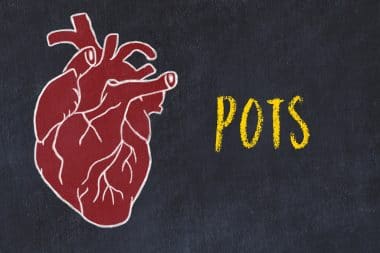Pulmonary hypertension is a condition that is when you have high blood pressure in the arteries to your lungs. These are the blood vessels carrying blood from the heart to the lungs, they start to become hard and narrow. This will cause your heart to have to work harder to pump the blood to the lungs.  Some of the types of Pulmonary hypertension aren’t curable, but there are treatments that will help it be manageable. Pulmonary hypertension can become very serious and even be fatal.
Symptoms
Symptoms to be aware of are shortness of breath, fatigue, dizziness, chest pressure or pain, swelling, or heart palpitations. Â If you experience any of these consult with your doctor.
Types
There are five categories that Pulmonary hypertension categorized by the cause of the Pulmonary hypertension. Â
The first group is Pulmonary arterial hypertension. Â The main cause of this is unknown. It could possibly stem from a gene mutation, the use of methamphetamines, or diseases such as scleroderma, HIV, or liver disease. Â
Pulmonary hypertension caused by left sided heart disease. Â This group of Pulmonary hypertension is caused from having left sided valvular heart disease, or failure of the left lower heart chamber. Â
Pulmonary hypertension caused by lung disease is another group. Â This can be caused by chronic obstructive pulmonary disease, i.e. emphysema, pulmonary fibrosis, or sleep apnea.
Pulmonary hypertension caused by blood clots, is just that. Â It is caused by chronic blood clots in the lungs.
The fifth group is Pulmonary hypertension caused by other conditions. Â This is very broad but the other conditions could include blood disorders, metabolic disorders, or tumors.
Risk Factors
There are some risk groups that are more prone to getting Pulmonary hypertension. Â If you are a young adult you can be more prone to developing Pulmonary hypertension. Â Other risk factors are overweight, family history, illegal drugs, or appetite suppressant medication. Â As well as if you have any of the conditions that lead into one of the Pulmonary hypertension groups.
Complications
Pulmonary hypertension can lead to some conditions. Â Right-sided heart enlargement, which can be caused by your heart having to pump too hard. Blood clots can be caused or bleeding into the lungs. Â Arrhythmia which is irregular heartbeats can also be caused from Pulmonary hypertension as well.
Diagnosis
Pulmonary hypertension can be very difficult to diagnose.  The symptoms are very similar to those of other heart and lung conditions.  This can lead to lots of different tests to get to the diagnosis. Your doctor may want to do an echocardiogram, which is an ultrasound of your heart.  This will take pictures of your heart to see how it is working. Another test that is similar to this is the electrocardiogram, ECG or EKG, which measures the electrical activity of your heart.  A chest X-ray or chest CT may be done to see the condition of your lungs.  If your doctor believes you have Pulmonary hypertension he may want to do a right heart catherization procedure.  This procedure is done by an small catheter being guided to your heart, either through a vein in your neck or groin.  Then the catheter is threaded into the right ventricle and artery of your heart to test the pressure. Also blood tests can be useful in diagnosing. Â
Treatment
There is no cure for Pulmonary hypertension. Â There are however treatments. These treatments can be sometimes very complex and will lead to lots of follow up visits. Â If you have one of the underlying conditions of Pulmonary hypertension, your doctor will usually treat that condition first in hopes lessening the symptoms of the Pulmonary hypertension in return. Â There are medications that can be taken to help with treatment such as blood vessel dilators, a high dose calcium channel blockers, anticoagulants, digoxin, diuretics, or oxygen. Your doctor will prescribe one of these if they feel it will help with your treatment. Â There are a few surgery options that can help with your treatment. Artirial septostomy is an open heart surgery that you may be a candidate for. This surgery is to relieve the pressure on the right side of the heart. Another surgery option could be transplantation. Â This could be a transplantation of your heart or lungs. Your doctor will be able to help decide if you are a good candidate for either of these.
Lifestyle Changes
There are some lifestyle changes that you can do on your own to help with your symptoms or to help keep you Pulmonary hypertension free if you have an underlying condition that can lead to Pulmonary hypertension. Â Make sure you get plenty of rest, this will help you battle the fatigue that can a symptom. Stay active and make sure you stay at a healthy weight. Avoid pregnancy this could be life threatening for you and your baby. Â Avoid traveling to higher altitudes. Avoid situations that can lower blood pressure such as lifting heavy weights that will make you strain, or taking a long hot shower or bath. Follow a nutritious diet and make sure to get vaccines. Â These can all help you with your symptoms of Pulmonary hypertension.
Though once you are diagnosed with Pulmonary hypertension it won’t ever truly go away. Â If you have an underlying condition that can lead to Pulmonary hypertension and that is cured, the high blood pressure may never go away and will need special treatment. Â Though it is not curable there are ways to deal with Pulmonary hypertension once you have been diagnosed with it. See your doctor if you have any questions or concerns about having Pulmonary hypertension. Â
Sleep Apnea Can Lead to Pulmonary Hypertension #HealthStatus
Source:Â mayoclinic.org








Reply